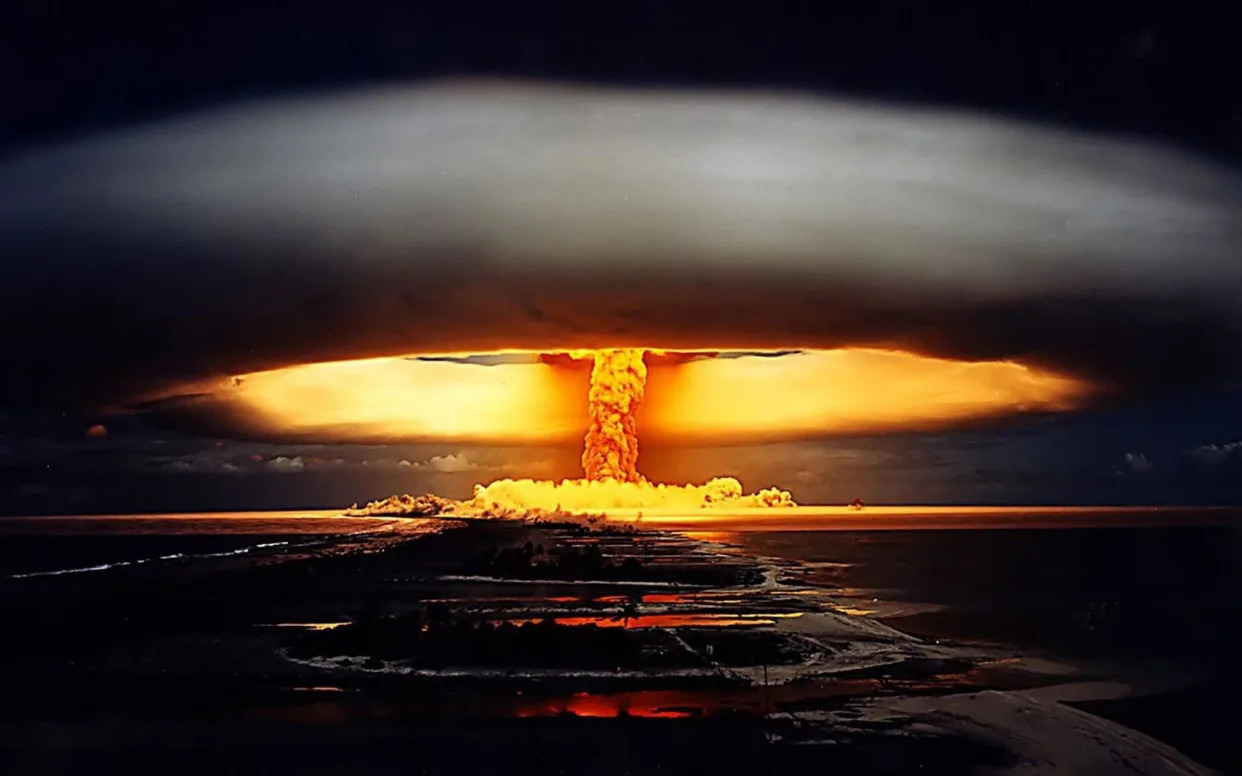Why it’s too late to stop World War 3
by Richard Overy
Imagine, for a moment, that the Iranian government announces it has developed a nuclear bomb and threatens to use it on Israel. The United States reacts with the threat of military intervention, as it did in 1991 and 2003 in Iraq. Iran signals that it will not tolerate a third Gulf war and looks for allies. American forces mass to enter Iran, which orders national mobilisation. Russia, China and North Korea express their support for Iran, and Washington expands its intervention force, bringing in a British contingent. Russia enters the game, raising the stakes in the expectation that the West will back down. A nuclear standoff follows, but with tense and itchy fingers on both sides, as leaders gamble on the risk of not striking first, it all ends in disaster. The Third World War begins with an exchange of nuclear fire, and the rest, as they say, is history.
Or picture this: Chinese frustration over the status of Taiwan prompts a build-up of invasion forces. The United States is preoccupied with its own domestic political crisis. Japan anxiously watches the exchange of harsh words between China and Taiwan, wondering whether to intervene. The United Nations condemns Chinese actions, and China repudiates the censure and orders invasion, confident that a quick victory will prevent others from intervening, as Hitler hoped when he invaded Poland in 1939. The United States now activates contingency plans to save Taiwan, and each side uses tactical nuclear weapons against the other’s armed forces. North Korea and Russia side with China. There is no general nuclear strike, but Russia warns Europe to keep out, dividing American strategy between the two theatres, as it was in the Second World War. The conflict continues to escalate. READ MORE...
Showing posts with label Nuclear War. Show all posts
Showing posts with label Nuclear War. Show all posts
Monday, June 24
Sunday, February 19
Using Artificial Intelligence in WAR
Countries including the United States and China called Thursday for urgent action to regulate the development and growing use of artificial intelligence in warfare, warning that the technology "could have unintended consequences".
A two-day meet in The Hague involving more than 60 countries took the first steps towards establishing international rules on use of AI on the battlefield, aimed at establishing an agreement similar to those on chemical and nuclear weapons.
"AI offers great opportunities and has extraordinary potential as an enabling technology, enabling us among other benefits to make powerful use of previously unimaginable quantities of data and improving decision-making," the countries said in a joint call to action after the meeting.
But they warned: "There are concerns worldwide around the use of AI in the military domain and about the potential unreliability of AI systems, the issue of human involvement, the lack of clarity with regards to liability and potential unintended consequences."
The roughly 2,000 delegates, from governments, tech firms and civil society, also agreed to launch a global commission to give clarity on its uses of AI in warfare and set down certain guidelines.
Militarily, AI is already used for reconnaissance and surveillance as well as analysis, and could eventually be used for autonomous choosing of targets—for example by "swarms" of drones sent into enemy territory.
China was invited to the conference as a key player in tech and AI, Dutch officials said, but Russia was not because of its invasion of Ukraine almost a year ago.
"We've clearly established the urgent nature of this subject. We now need to take further steps," Dutch Foreign Minister Wopke Hoekstra said at the conference's end.
Although experts say a treaty regulating the use of AI in war may still be a long way off, attendees agreed that guidelines urgently needed to be established.
"In the end it's always the human who needs to make the decision" on the battlefield, General Joerg Vollmer, a former senior NATO commander, told delegates.
"Whatever we're talking about, AI can be helpful, can be supportive, but never let the human out of the responsibility they have to bear—never, ever hand it over to AI," Vollmer said in a panel discussion.
Subscribe to:
Comments (Atom)

